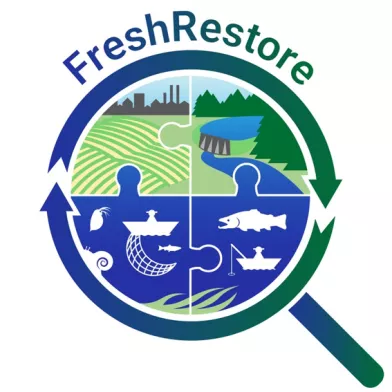FreshRestore
Holistic evaluation and restoration measures of human impacts onfreshwater ecosystems across biogeographical gradients

Partners
Partners
NINA Lillehammer, Norwegian institute for nature research
Environmental Science, environmental social science and geography
Biological and Environmental Science, University of Jyväskylä
Biology and Geology, Physics and Inorganic Chemistry, King Juan Carlos University
Ecology and Environmental Science, Umeå University
Abstract
Abstract
Freshwater ecosystems are under tremendous anthropogenic stress both at global (e.g. from climate change) and at catchment scales (e.g. from land and water use). A direct result is that freshwater ecosystems in general hold alarmingly many threatened species. This is not only problematic for biodiversity, but also for human prosperity as functional freshwater ecosystems provide a range of ecosystem services. These typically include recreation and tourism, water supply, water quality control, erosion prevention and food supply, among many. A key challenge of the 21st century is therefore to understand and predict how freshwater ecosystems respond to the suite of stressors, and concurrently how we can sustain and restore these systems at a large scale. FreshRestore aims to meet this challenge by integrating the understanding of multilevel changes in freshwater ecosystems and their surrounding landscapes with a socio-economic framework. This will allow coherent evaluation and mitigation of negative human impacts on lakes (e.g. via best practice solutions for land use), in order to support the ecosystem services provides to us people (e.g. recreational and commercial fisheries).